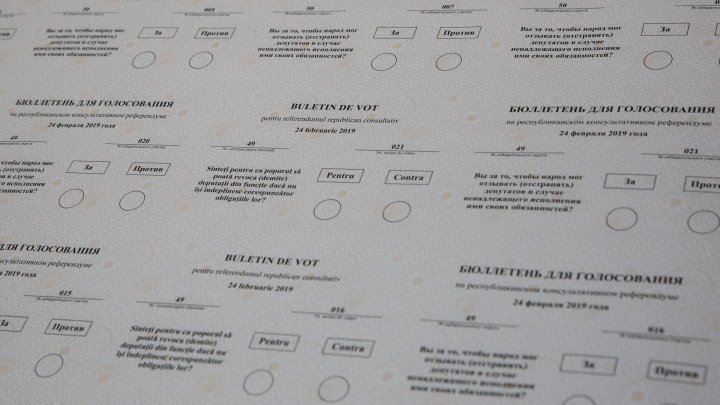People with hearing and sight deficiencies voted: They were helped by the translators and by Braile language
 foto: publika.md
foto: publika.md
People with hearing and sight impairments have also voiced their vote today. For the first time in the today's poll, the hearing impaired was accompanied by a translator in the polling station.
Translation of the gesture language was provided in five polling stations from the Capital.
People with hearing impairment are pleased to have created conditions to make it easier to vote.
"There were moments when I had to write what I want to say because I was the only one and there was no interpreter alongside", said a woman.
"Where we do not go we do not hear we do not know what is happening around and we are very pleased to be an interpreter, to watch a TV you do not understand, we are hearing", added the woman.
Experience is new to sign language interpreters as well.
"And not only here, generally in all state institutions, organizations with governmental, non-governmental, people with hearing disability, need an interpreter", said a woman.
And people with visual impairments came to express their voting option. Traditionally, they have received newsletters in the language of Braile.
"We want our blind children to have a perspective on education and education, because our school is on the verge of extinction, only 32 children learn it", said Nicolae Ciobanu, principal specialist at the Association of the Blind.
And conditions for people with visual impairments were created to vote. A closed-circuit television system was installed at a polling station, capable of enlarging the image.
The video image is projected on the screen can be magnified up to more than 60 times, and we can also increase font size, depending on the patient's needs, black and white on white, as well as dependencies.
There are 5 thousand people with hearing deficiencies in Moldova, about 1000 of whom live in the Capital.